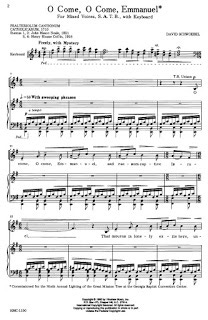The Practice of Advent

The second Sunday of Advent.
As I mentioned last year, during Advent I notice a lot of blog posts, Facebook updates and Twitter tweets lamenting how people are singing Christmas carols during Advent.
Yes, there are Advent snobs.
But the point is well taken, and one that I've only just recently come to appreciate. Because I didn't grow up in a liturgical tradition I never learned to note or appreciate the distinction between Advent and Christmas. It was all just Christmas to me.
But the distinction is this. Advent is a time of expectation, a season of waiting and anticipation. Christmas is a time of celebration and rejoicing for the gift that is given.
In liturgical time during the season of Advent Christ isn't yet born. During Advent we are looking forward, anticipating, longing for, and waiting for the birth of Immanuel. So an Advent song would be O Come, O Come Emmanuel.
O come, O come, Emmanuel,
And ransom captive Israel,
That mourns in lonely exile here
Until the Son of God appear
Rejoice! Rejoice!
Emmanuel shall come to thee, O Israel
One of the reasons evangelicals struggle with practicing Advent is because they don't live with the liturgical calender. Consequently, evangelicals don't go to church on Christmas (unless it fortuitously falls on a Sunday). Nor do they celebrate the twelve days of the Christmas season, celebrating the Christ-child from the Feast of the Nativity (Christmas day) to Epiphany (the visitation of the wise men).
What this means is that evangelicals have no place to sing Christmas songs. They won't be in church on Christmas. Nor do they celebrate Christmas past December 25th, passing on twelve days--the proper days--of singing Christmas carols. Which means the only time evangelicals can corporately sing Christmas songs are on the Sundays of Advent.
And this goes even for liturgically minded evangelicals. If you don't gather on Christmas day you are forced to sing Christmas songs during Advent.
Consequently, because they sing Christmas carols during Advent most evangelicals only know one Advent song: O Come, O Come Emmanuel. Past that song they draw a blank. (Some might know two songs, with Come Thou Long-Expected Jesus coming in a distant second.)
All of which exacerbates the already strong tendency among evangelicals to rush to the happy ending, their temptation toward an over-realized and triumphalistic eschatology. Structurally, evangelicals are forced to sing Christmas songs during Advent. So even when they try to celebrate Advent the practice is impoverished. Plus, generally knowing only one Advent song, evangelicals are faced with the prospect of singing O Come, O Come Emmanuel over and over and over. Evangelicals wanting to celebrate Advent just don't have the hymnody to pull it off. They will need to learn some new songs.
And learn they should.
Because advent is a groaning, the time of being in exile and longing for liberation. In this Advent is to Christmas as Lent is to Easter.
This is the experience I wrote about this week in the post Advent: A Prison Story.
Consequently, those Advent snobs are not being snobby at all. They are making an important point. In our rushing to the Happy Ending, by singing those Christmas carols too quickly, we fail to practice the waiting and the lament of Advent.
Advent is being the slave in Egypt, sitting with the experience of exile. Advent is about looking for God and hoping for God in a situation where God's promises are outstanding and yet to be fulfilled.
Rushing through Advent to get to Christmas is like rushing past Good Friday to get to Easter.
Waiting for God and enduring the pain of that waiting is a spiritual discipline. Advent is a time to cultivate that discipline. A time to chasten the rush to happy endings in our spiritual lives.
We must learn and attend to the practices of Advent.
And maybe then we'll be ready for Christmas.
All twelve days of it.



